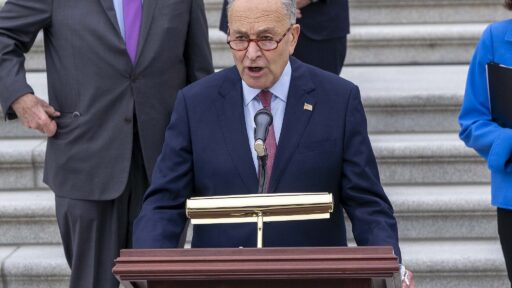Lawmakers are clearly divided over this issue.
On Sunday, Senator Lindsey Graham (R-S.C.) expressed his opposition to former President Donald Trump’s recent proposal to mandate insurance companies to cover in vitro fertilization (IVF) treatments. Graham’s response was clear: “No, I do not support that idea. There’s no end to such mandates.”
Last Thursday, Trump suggested that if re-elected, his administration would ensure that either the government or insurance companies cover the costs of IVF. He emphasized his commitment to protecting access to IVF for all Americans and indicated that his plan would involve either direct payment by the government or mandating insurance companies to cover these expenses.
While Trump’s proposal has sparked debate, Graham advocates for a different approach. He proposed the introduction of a means-tested tax credit for individuals undergoing IVF treatments. “We already offer tax credits for families with children. It makes sense to extend similar support to those using IVF and other fertility treatments,” Graham argued. This approach, he believes, would encourage family growth without imposing new mandates on insurance companies.
Graham also reaffirmed that the Republican Party is not opposed to IVF treatments or birth control, despite some perceptions. “We’re not against IVF treatments,” he stated. “We’re just looking for practical solutions that align with our values and principles.”
The debate around IVF has intensified, especially in light of recent legal challenges and political rhetoric. Following the Alabama Supreme Court’s controversial ruling that recognizes frozen embryos as people under the law, IVF services faced significant disruptions in the state. However, legislation was swiftly enacted to address the legal concerns, allowing IVF procedures to resume.
The Trump campaign, along with the broader Republican Party, has largely avoided delving into contentious issues related to reproductive rights and abortion as the 2024 election approaches. The reversal of Roe v. Wade in 2022, largely attributed to Trump’s judicial appointments, has significantly influenced voter sentiment. As a result, the party seeks to navigate these issues carefully, focusing on policy proposals that resonate with their base while avoiding polarizing debates.







